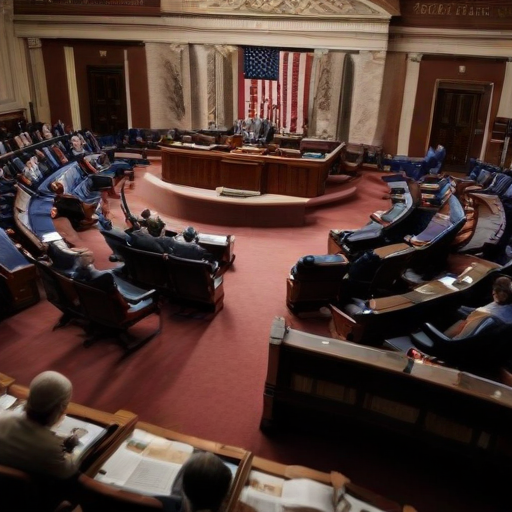Efforts to avert a partial government shutdown set to begin this weekend faced significant challenges after several Republicans expressed their dissatisfaction with the additional provisions included in a short-term funding bill. The proposed legislation, released on Tuesday, seeks to fund the government until March 14 and extends critical agriculture and nutrition programs through September 30. However, its 1,547 pages also contain tens of billions in emergency aid for communities recovering from natural disasters, which have angered some far-right members of the Republican Party.
Vice President-elect J.D. Vance indicated on social media that he and President-elect Donald Trump believe Republicans should leverage the final two days before a potential shutdown to push Democrats to address the debt limit. This decision complicates an already contentious negotiation between the Republican-controlled House and the Democratic-controlled Senate.
If Congress does not pass a stopgap spending bill by the midnight Friday deadline, all federal departments and agencies will cease operations. This would result in essential employees working without pay and many being furloughed. Unlike the previous 35-day partial government shutdown, which affected specific departments, a new shutdown could broadly impact various federal agencies, including those dealing with national security.
Interestingly, the debt limit had not been part of the ongoing conversations until Vance emphasized its inclusion in any spending bill discussions. The current debt limit suspension is set to expire on January 1, but Treasury Department maneuvers could delay any potential defaults. Vance’s stance suggests a preference for addressing this issue promptly, cautioning that delaying the debate could complicate matters during the upcoming election cycle.
Elon Musk, tasked with overseeing federal government efficiency, opposed any legislative movement until after Trump’s inauguration, warning that current proposals could hinder essential government programs. Meanwhile, Senators from North Carolina and West Virginia emphasized the importance of including disaster aid in any funding discussions, reflecting the urgency of supporting communities impacted by recent hurricanes.
In response to the unfolding situation, the White House urged Republicans to prioritize bipartisan cooperation. Press Secretary Karine Jean-Pierre stressed the importance of reaching an agreement that protects the basic services Americans depend on, warning that a government shutdown would have harmful effects on families and communities.
In summary, the unfolding crisis reflects deep divisions within the Republican Party and will require significant negotiation efforts in the final hours to avoid a government shutdown. The stakes are high, especially for those relying on federal programs crucial for disaster recovery and national security.
Despite the current turmoil, this situation may serve as an opportunity for lawmakers to engage in substantive discussions that prioritize the needs of Americans facing economic challenges. By highlighting bipartisan cooperation, there is potential for a more unified approach to governance moving forward.
